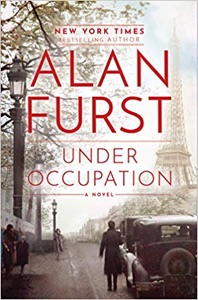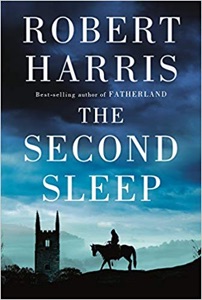I took a sudden detour into A. J. Liebling, a wonderful New Yorker writer I have tended to confuse with I.J. Perelman. It was lots of fun, and set my reading back two weeks.
Liebling ate seriously, and intelligently suggested that, if one wishes to learn about eating well, one must not waste time or meals. He makes a very interesting point about choice. Suppose you have six francs for a meal. Should you buy a nice half-bottle, at 3½ francs, and order the beef heart and turnips? Or would you prefer a steak, a francs, and some vin ordinaire? Learning how to make this choice matters, and this is why (as Liebling observes) it is quite difficult to acquire a real education if one has plenty of money.
Liebling liked cassoulet, and Waverly Root liked cassoulet, and I had a dinner or two to plan for December when rich stews need have no fear of meeting a warm and sunny day when everyone wants something light. I’d also read something about the pleasures of the crust of the cassoulet, and I’d never met a cassoulet with a crust: not in Carcasonne and certainly not in my kitchen. Besides, I’d been reading Michael Ruhlman’s Scratch and cassoulet is scratchy.
Cassoulet, really, is just a pot of beans with various left-over meats. It’s easy to make right if you’re in the right place, because you have all the parts on hand. If you want to make it North Of Boston, however, you don’t have the parts on hand. (D’Artagnan will sell them to you, if you like.)
When I mentioned this enterprise to my wine guy, he asked me “Julia Child? Three days?” I wasn’t using Julia this time, but I did start working on this a week in advance.
- Beans: tarbais is de rigeur. Rancho Gordo has them, naturally. Cook them in stock the day before.
- Stock. Thanksgiving always fills the freezer with turkey bones, and I had some duck bones, and some chicken carcasses. Making a nice dark turducken stock the week before kicks things off right.
- Duck confit. I make this all the time in the winter. Or I think I do: I managed to skip it last winter, so that’s another reason to make this. Because I don’t have buckets of duck fat in my freezer, I use Sally Schneider’s trick: season the duck legs well (juniper berry, allspice, coriander, pepper, and more salt than they think quite right in France) and carefully wrap them in have-duty foil. A few hours at 300° and you’re set.
- Ventrèche. Pork belly, salt-cured for a day or maybe two and then lightly smoked. The smoke is controversial. Everything about this meal is controversial. After it cools, cube it. Keep the pork rind; you put it on the bottom of the cocotte where it imparts an aura of authenticity without any further impact on the meal.
- Lamb ragout. Wildly controversial in cassoulet, but good. I used a couple of pounds of lamb neck. You only use the meat, but the sauce should make an interesting pasta sauce.
- Saucisson sec. I bought this.
- Toulouse sausage. I bought some bratwurst, and added some garlic.
I mentioned cassoulet to my wine guy. “Three days?” He asked. “The whole Julia Child?” I didn’t use Julia this time, but I did start the stock a week before dinner. There’s a ton of steps and intermediate products, but they’re all easy. Assembly is easy: you add some beans, some meat, some more beans, some meat, some more beans, confit, and top with beans. Add stock, hottish oven for a few hours, eat.
Easiest dinner party you'll ever cook, albeit it does mean starting a week ahead.

